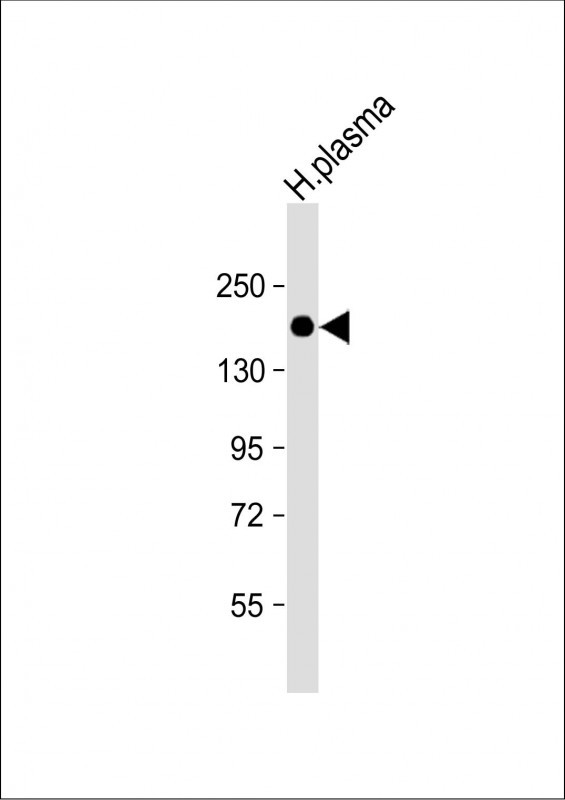
| WB | 1/2000 | Human,Mouse,Rat |
| IF | 咨询技术 | Human,Mouse,Rat |
| IHC | 咨询技术 | Human,Mouse,Rat |
| ICC | 技术咨询 | Human,Mouse,Rat |
| FCM | 咨询技术 | Human,Mouse,Rat |
| Elisa | 咨询技术 | Human,Mouse,Rat |
| Aliases | Complement factor H, H factor 1, CFH, HF, HF1, HF2 |
| Entrez GeneID | 3075 |
| WB Predicted band size | 139.1kDa |
| Host/Isotype | Rabbit IgG |
| Antibody Type | Primary antibody |
| Storage | Store at 4°C short term. Aliquot and store at -20°C long term. Avoid freeze/thaw cycles. |
| Species Reactivity | Human |
| Immunogen | This CFH antibody is generated from rabbits immunized with a KLH conjugated synthetic peptide between 751-780 amino acids of human CFH. |
| Formulation | Purified antibody in PBS with 0.05% sodium azide. |
+ +
以下是3篇关于补体因子H(CFH)抗体的代表性文献摘要:
---
1. **文献名称**: *Anti-Factor H Autoantibodies in Atypical Hemolytic Uremic Syndrome*
**作者**: Józsi, M. et al. (2015)
**摘要**: 研究揭示了非典型溶血尿毒综合征(aHUS)患者中抗CFH自身抗体的存在及其致病机制。通过分析患者血清,发现这些抗体主要靶向CFH的C端结构域,导致补体过度激活和内皮损伤,提示免疫抑制治疗可能改善预后。
---
2. **文献名称**: *Clinical Features of Anti-Factor H Antibody-Associated Hemolytic Uremic Syndrome*
**作者**: Noris, M. et al. (2010)
**摘要**: 该研究分析了抗CFH抗体阳性aHUS患者的临床特征,发现儿童患者占比较高(约25%),且多伴随低C3水平。血浆置换联合免疫抑制剂可显著降低抗体滴度,但复发风险仍需长期监测。
---
3. **文献名称**: *Detection and Characterization of Anti-Factor H Antibodies in Patients with Age-Related Macular Degeneration*
**作者**: Scholl, H.P.N. et al. (2008)
**摘要**: 探讨了年龄相关性黄斑变性(AMD)患者中抗CFH抗体的潜在作用。研究发现部分AMD患者血清存在低水平的抗CFH IgG抗体,可能通过干扰补体调控参与视网膜病变,提示补体靶向治疗的新方向。
---
如需具体文献链接或更多细节,可进一步提供数据库检索关键词(如PMID/DOI)。
×